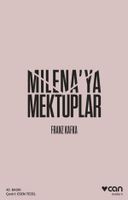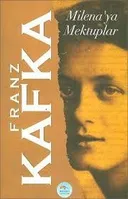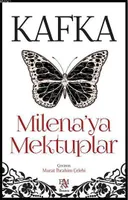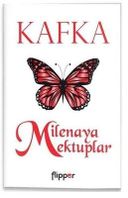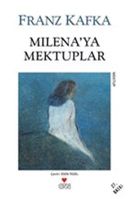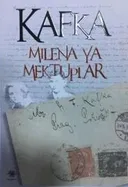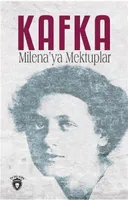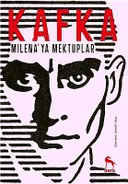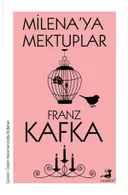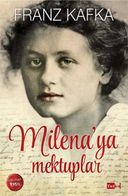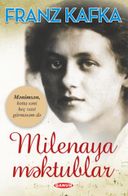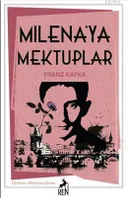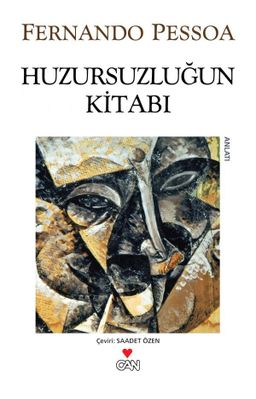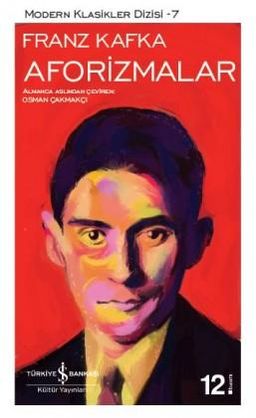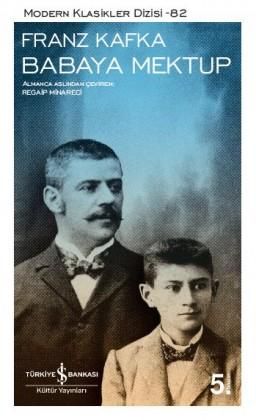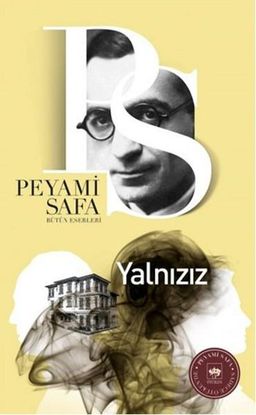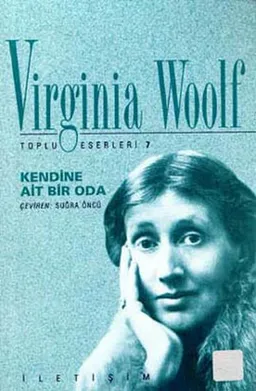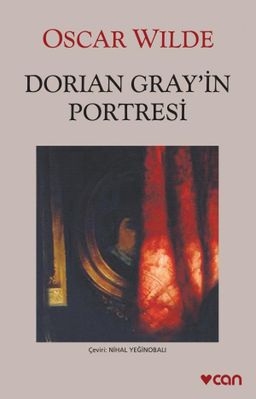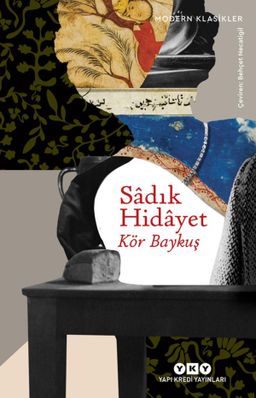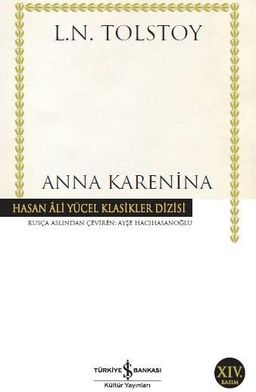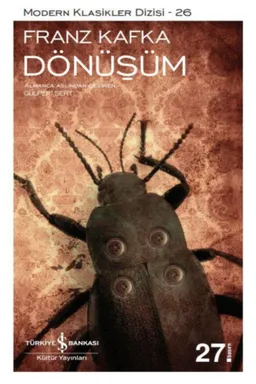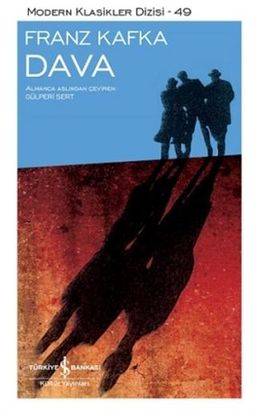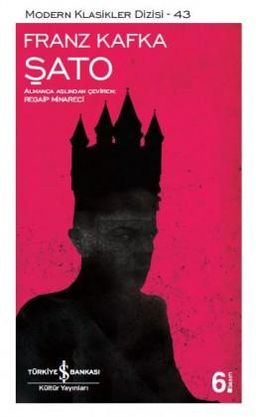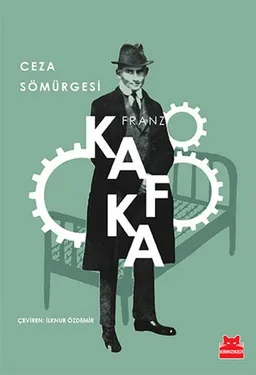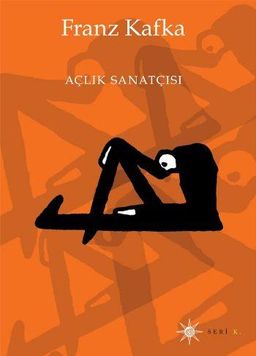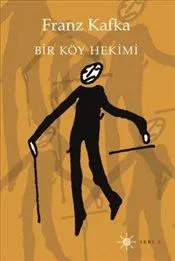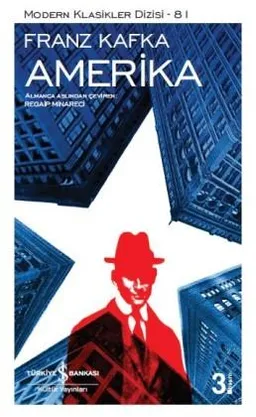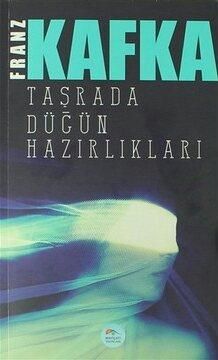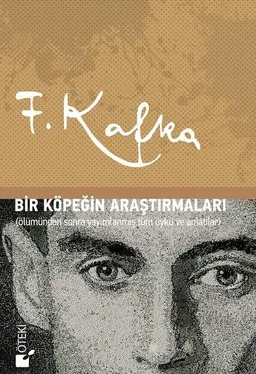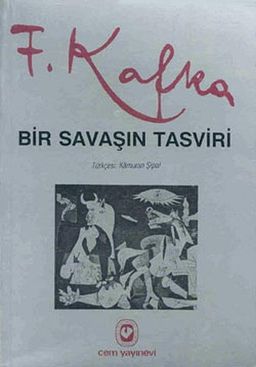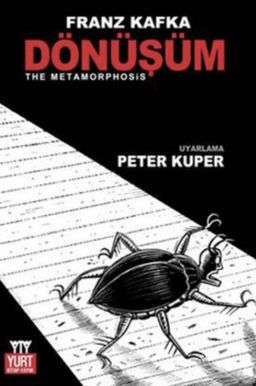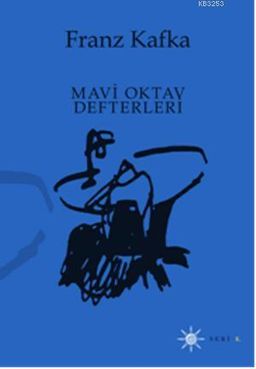Milena'ya Mektuplar
Franz KafkaAbout Milena'ya Mektuplar
Milena'ya Mektuplar subject, statistics, prices and more here.About
Author: Franz Kafka
Estimated Reading Time: 7 hrs. 56 min.Page Number: 280Publication Date: 2014First Publication Date: 1952Publisher: Nilüfer YayıneviISBN: 97818530997Country: TürkiyeLanguage: TürkçeFormat: Karton kapak
Türler:
Other Editions
Milena'ya Mektuplar
30.1k okunmaCan Yayınları · May 2023 · 400 syf
Milena'ya Mektuplar
5.2k okunmaMavi Çatı Yayınları · June 2018 · 390 syf
Milena'ya Mektuplar
3,223 okunmaPanama Yayıncılık · January 2014 · 400 syf
Milenaya Mektuplar
2,725 okunmaFlipper Yayıncılık · January 2019 · 392 syf
Milena'ya Mektuplar
2,158 okunmaİndigo Yayınları · 13 August 2018 · 320 syf
Milena'ya Mektuplar
1,271 okunmaKoridor Yayıncılık · May 2023 · 445 syf
Milena'ya Mektuplar
515 okunmaCan Yayınları · 2017 · 395 syf
Milena'ya Mektuplar
457 okunmaNilüfer Yayıncılık · 2018 · 280 syf
Milena'ya Mektuplar
430 okunmaDorlion Yayınevi · October 2020 · 318 syf
Sevgili Milena
406 okunmaSay Yayınları · 6 December 2016 · 280 syf
Milena'ya Mektuplar
381 okunmaNora Yayıncılık · 2016 · 312 syf
Milena’ya Mektuplar
378 okunmaOlimpos Yayınları · June 2019 · 336 syf
Milena'ya Mektuplar
338 okunmaTutku Yayınevi · 2014 · 392 syf
Milenaya Məktublar
333 okunmaQanun Nəşriyyatı · 2019 · 280 syf
Milena'ya Mektuplar
328 okunmaRen Yayınları · November 2017 · 416 syf
Book Statistics
All statistics
Statistics of this edition
Reader Profile of the Book
Kadın% 77.3
Erkek% 22.7
0-12 Yaş
13-17 Yaş
18-24 Yaş
25-34 Yaş
35-44 Yaş
45-54 Yaş
55-64 Yaş
65+ Yaş
About the Author
Franz KafkaYazar · 138 books
This text has been automatically translated from Turkish. Show Original
He was a writer who came from a Jewish merchant family and was fluent in German. Kafka's most important works, as well as his three novels (The Trial, The Castle and The Lost); It creates many stories that it reveals.
Most of Kafka's works were published only after Kafka's death by his colleague and close friend Max Brod, and these works left a lasting impact on world literature in the 20th century.
He was born in Prague in 1883. It is said that Franz Kafka, the child of a father who came from the provincial Czech proletariat and rose to the position of a wealthy merchant, and a wealthy and enlightened German Jewish mother, owed his introverted and restless personality largely to his mother. Kafka's two brothers, the eldest child in the family, died at a young age. Her sisters Elli, Valli and Ottla lost their lives in the Holocaust, the Jewish massacre organized by Nazi Germany. Kafka grew up alienated from his surroundings due to various family and social reasons. As a result of his family's efforts to integrate with the German society in Prague, he studied in German schools.
The Austrian High School, where he started studying in 1893, was a major factor in his loneliness and introversion. Even though he came from a family of Czech origin, Kafka was not considered a true Czech because he spoke German as his native language, but the Germans did not fully consider him one of their own. Kafka, who spoke Czech at a young age, mastered German with the influence of the German schools he attended.
After graduating from Altstädter Gymnasium high school in 1901, he entered the Faculty of Law of Karl Ferdinand University in Prague. During his education here, he started to follow German literature courses. During his student years, he took part in and supported Yiddish theater studies. Kafka wrote his first work, the story "Description of a War", during this period.
He met Max Brod in 1902. Max Brod would be one of the names that played an important role in Kafka's life.
He completed his law education with a doctorate in 1906 and did a one-year legal internship.
He started working as a clerk in the Insurance Company in 1907. In addition to his working life at the insurance company during the day, he was concentrating on his writing work at night, which he compared to a sleep deeper than death. In the same year, he wrote his story "Wedding Preparations in the Countryside".
In 1912 he met his fiancee, Felice Bauer. She ended her relationship with him by breaking up and getting engaged three times.
He continued until 1919. He cited his illness as the reason for not marrying. However, in his diary, he described marriage as a bourgeois bond and emphasized that he needed solitude to continue his literary life. More than five hundred letters remain from this relationship with his fiancee. These were published as 'Letters to Felice' in 1967, long after Kafka's death.
In 1917, Kafka learned that he had tuberculosis.
He was hospitalized due to severe flu in 1919.
He met Milena Jesenska in 1920. Among the four women he corresponded with, Milena Jesenska was the most serious and important. His correspondence with Milena started as a friendship, then turned into a passionate love. But since Milena was married, this unhappy and impossible love dragged Kafka into deep pain. They were able to meet only two or three times during the three years they corresponded, and these meetings did nothing but upset Kafka, but it can easily be said that they had a positive impact on his creativity. In his "Letters to Milena", which will later be considered one of the distinguished works of literary history, Kafka expresses his situation as follows;
"I say I love you the most, but I guess that's not true love, you are a knife, I constantly pierce myself with that knife. If I say, maybe I would be describing true love..."
Milena gave these letters to her close friend Willy Haas for publication in 1939, and he died in a concentration camp in Germany on May 17, 1944.
He retired in 1922, his financial situation was poor and his health was deteriorating.
In 1923, he moved to Berlin to escape his family's influence and concentrate on writing, where he had a lover named Dora Dymant. Dora was luckier than Milena. She resisted Nazi Germany and died in London in 1952.
He passed away on the night of June 3, 1924, in the Keirling sanatorium near Vienna, where he was taken in 1917.
The phenomenon of alienation seen in all of Kafka's works is also clearly observed in his own life. In his opinion, the smaller and simpler his life is, the happier and more trouble-free he will be. During the Nazi occupation of Czechoslovakia, many documents related to Kafka were destroyed. At the end of their 20-year friendship, Kafka gave all his writings to Max Brod to burn after his death. He thought what he wrote was too personal and worthless. Of course, Max did not agree with him, and after Kafka's death, he collected, edited and published thousands of pages of mixed texts.
What his life and works have in common is, as Camus said, "To show everything and confirm nothing."
Because he sees living as a war, but a war that has already been lost. Because it is almost impossible to live as a human being and move on the right path.
Books
Dönüşüm
7.8/10
Milena'ya Mektuplar
7.4/10
Dava
7.4/10
Babaya Mektup
7.7/10
Aforizmalar
7.4/10
Şato
7.3/10
Ceza Sömürgesi
7.4/10
Açlık Sanatçısı
7/10
Bir Köy Hekimi
7/10
Amerika
7.2/10
Taşrada Düğün Hazırlıkları
4.9/10
Bir Köpeğin Araştırmaları
6.9/10
Bir Savaşın Tasviri
7/10
Dönüşüm (The Metamorphosis)
7.4/10
Mavi Oktav Defterleri
8.2/10
